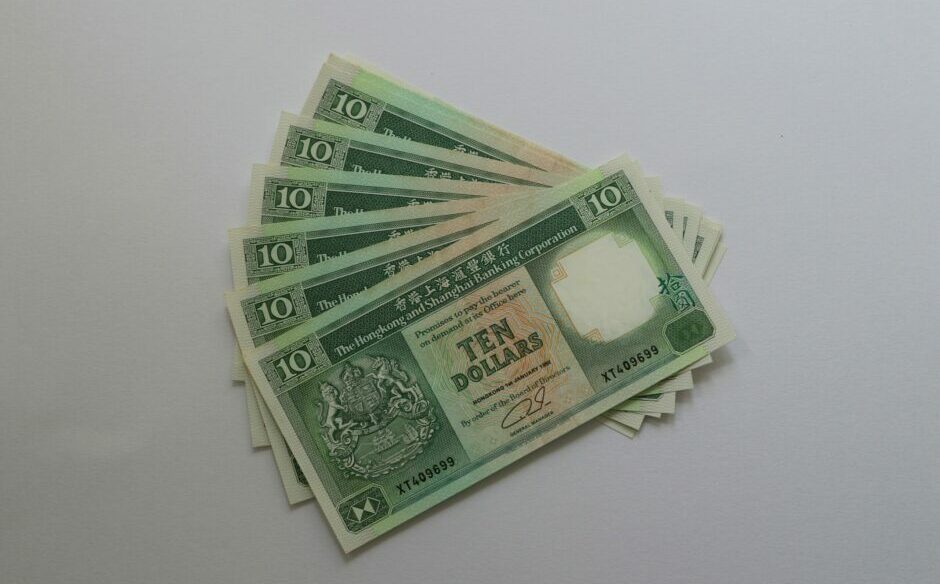SEOUL — When Samsung Electronics Chairman Lee Kun-hee died in October at age 78 after a long hospitalization, the wealth he left behind was of little concern to his bereaved wife and children as they publicly grieved his loss.
Dressed in mourning clothes, the remaining members of South Korea’s richest business family greeted well-wishers paying respects to the man credited with turning Samsung — once known for cheap household appliances — into a global tech powerhouse.
Six months after Lee’s funeral, though, the financial consequences of his death are now being much more closely scrutinized. Widow Hong Ra-hee and her three children — including jailed Samsung Vice Chairman Lee Jae-yong — are set to pay the country’s largest-ever inheritance tax, a sum potentially exceeding $10 billion.
Ahead of Friday’s deadline for settling the bill, attention is focused on how the late business titan’s wealth will be distributed among family members. The result will carry huge implications for whether they can keep control of Samsung Group, the most prominent and powerful of South Korea’s chaebol, or family-run conglomerates. The business was founded more than eight decades ago by Lee Byung-chull, the father of Lee Kun-hee.
The levy for inheriting Lee Kun-hee’s stock holdings alone was confirmed at 11 trillion won ($9.87 billion) in December, based on the portfolio’s average closing prices for the two months before and after his death.
But he also left large-scale real estate, including two houses in central Seoul valued at 40.8 billion won and 34.2 billion won, respectively. His half of the 14,878-sq.-meter Everland amusement park south of the city is estimated to be worth 2 trillion won.
More than 13,000 works of art — dubbed the “Lee Kun-hee collection” by South Korean media — are also subject to inheritance taxes, and their combined value is estimated at more than 2.5 trillion won.
Artworks that Lee owned personally include Claude Monet’s “Water Lilies” and Pablo Picasso’s “Portrait of Dora Maar.” They are separate from holdings in the Leeum, Samsung Museum of Art and the Ho-Am Art Museum, both run by the Samsung Foundation of Culture.
Local media report that the family may donate some of Lee’s personal art to the National Museum of Modern and Contemporary Art, Korea and the National Museum of Korea. The family does not need to pay tax on any donated works.
By letter of the law, Hong as Lee’s widow would receive one-third of the total inheritance, while the three children obtain two-ninths each. These children include daughters Lee Boo-jin, CEO of the group’s luxury Hotel Shilla, and Lee Seo-hyun, who chairs the Samsung Welfare Foundation.
But analysts say the family might have agreed that Lee Jae-yong, who despite his title is seen as the de facto chief of Samsung Electronics, will receive the largest share. Such an agreement would override the legal distribution ratio and is considered critical in determining continued control of the Samsung empire.
The family is expected to announce the wealth distribution and tax payment before Friday.
The Koo family, which controls the conglomerate centered on LG Electronics, made such a decision when Chairman Koo Bon-moo died in 2018. His son, Koo Kwang-mo, inherited more than 70% of his father’s stake, thus solidifying his control.
Samsung has issued no formal statements on the inheritance issue. “The family will proceed reasonably in dealing with the wealth distribution and tax payment,” a Samsung executive, requesting anonymity, told Nikkei Asia.
Lee Kun-hee long controlled Samsung through a complex web of so-called circular shareholdings. He owned a 4.18% stake in Samsung Electronics — the group’s core — as well as 20.76% of Samsung Life Insurance and 2.88% of Samsung C&T, its construction unit and de facto holding company.
Though South Korea has a bevy of chaebol, Samsung stands in a class by itself. It has long been known as the “Republic of Samsung,” a moniker suggesting power and influence more akin to a country than a business group.
Total revenue of Samsung Group — 59 companies ranging from electronics and construction to shipbuilding, biopharmaceuticals and insurance — has been estimated to account for as much as about 20% of South Korea’s gross domestic product at times over the years.
Under pressure from the Korea Fair Trade Commission, Samsung in recent years has moved to undo many of the cross-shareholdings, though its ownership structure remains complicated.
A key issue surrounding the inheritance is how Lee Jae-yong, a billionaire in his own right, would cough up the cash to pay the tax if he receives the largest share. He can take five years to do so, but still should have to pay about 1 trillion won by Friday if he inherits half the wealth.
Selling some of his own Samsung stock is not viewed as a realistic option for Lee Jae-yong because it might erode his control. Analysts say the vice chairman may have to borrow money from banks.
Choi Nam-kon, an analyst at Yuanta Securities, said in a note that his house thinks “it is possible to pay the inheritance tax with [securities-backed] loans, considering current loan interest rates and dividend payment rates.”
Activist investors have complained about transparency at Samsung and pushed for change. U.S. hedge fund Elliott argued that the merger between Samsung C&T and Cheil Industries in 2015 was designed to help the younger Lee strengthen his grip on the entire group by hurting the interests of C&T shareholders.
“Specifically, the merger was structured so that Samsung C&T shares would be undervalued and Cheil shares would be overvalued, enabling JY Lee, a significant shareholder in Cheil, to acquire Samsung C&T on the cheap, and thereby in turn obtain control over Samsung C&T’s stake in Samsung Electronics, the ‘crown jewel’ of the Samsung Group,” Elliott said in a statement of claim filed with the Permanent Court of Arbitration in The Hague in 2018, referring to Lee Jae-yong.
The case, which Elliott filed against the South Korean government, remains pending.
But even if Samsung and its lawyers reduce the tax burden and obtain loans to pay it, the process will be daunting for the imprisoned Lee. The 52-year-old has been serving a two and a half year sentence since January on a conviction for bribery and embezzlement. He returned to prison earlier this month after undergoing an appendectomy at Samsung Medical Center.
The timing of the denouement is sensitive as corporate leaders and opposition politicians are asking President Moon Jae-in to pardon Lee for the sake of South Korea’s economy. Corporate leaders made the same request this month to Finance Minister Hong Nam-ki, who promised to relay it to the relevant government ministry.
Such leniency is not unusual in South Korea. Presidential amnesty for captains of industry and even convicted former presidents is something of a tradition. Judges often show leniency as well, letting convicted chaebol bosses avoid prison through suspended sentences, such as ones given to Lee Kun-hee, by emphasizing their importance to the country’s export-oriented economy. South Korea ranked as the world’s 12th largest economy in 2019.
But in recent years, courts have taken a harsher approach by making chaebol chiefs such as SK Chairman Chey Tae-won spend time behind bars when convicted. Chey was pardoned in 2015 by then-President Park Geun-hye, herself now serving a 22-year prison sentence for corruption while in office.

 のコピー.jpg?width=1024&height=512&fit=cover&gravity=faces&source=nar-cms)





